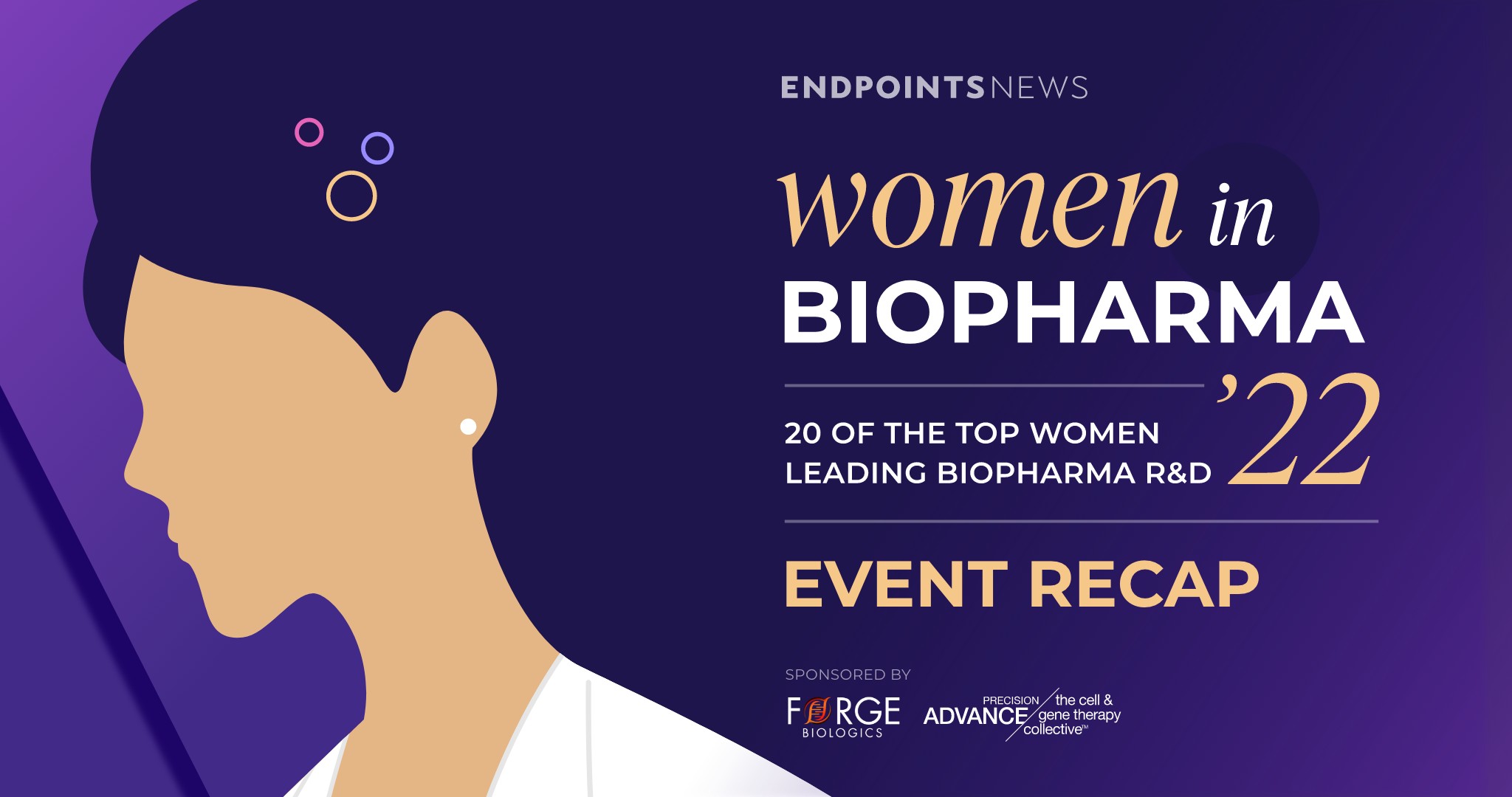
WIB22: Hear from our 2022 Women in Biopharma R&D honorees, and catch our panel on empowering women
If we’ve learned anything from our annual Women in Biopharma R&D report over the last four years, it’s that there’s much to celebrate.
We received more than 500 nominations this year highlighting extraordinary women who are blazing trails in drug development. While selecting just 20 honorees has become increasingly difficult, we were thrilled to debut this year’s group with you last week. They’re scientists, CEOs, researchers and more who have developed new drugs for rare and life-threatening diseases, changed the way we think about common conditions such as migraine, and broken boundaries.
Unlock this article instantly by becoming a free subscriber.
You’ll get access to free articles each month, plus you can customize what newsletters get delivered to your inbox each week, including breaking news.